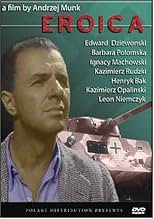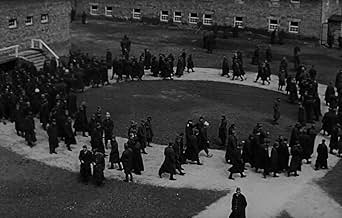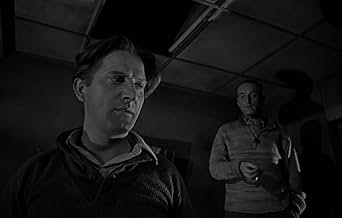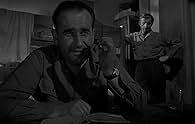Eroica
- 1958
- 1h 27min
Agrega una trama en tu idiomaTwo sketches covering episodes from the World War II. In the first novel, "Scherzo alla polacca", a shrewd son, trying to preserve his skin, ultimately becomes a hero and finds a reason for ... Leer todoTwo sketches covering episodes from the World War II. In the first novel, "Scherzo alla polacca", a shrewd son, trying to preserve his skin, ultimately becomes a hero and finds a reason for fighting. He initially tries to avoid underground training to avoid the Warsaw uprising. H... Leer todoTwo sketches covering episodes from the World War II. In the first novel, "Scherzo alla polacca", a shrewd son, trying to preserve his skin, ultimately becomes a hero and finds a reason for fighting. He initially tries to avoid underground training to avoid the Warsaw uprising. His drunkenness, disregard for safety and cowardice when sober stated with humorous effect ... Leer todo
- Premios
- 5 premios ganados y 1 nominación en total
Opiniones destacadas
Our second film, Ostinato Lugubre, tells the story of a group of Polish Officers encamped in a German Prisoner of War camp and details the everyday life of the men as they deal with their feelings, lack of privacy and their affection for one man who escaped. Did he really escape? This is the plot point that holds this story together so well. We witness brilliant acting and a deeply moving script.
This is considered one of Munk's great masterpieces and deserves a chance to be released on video. This was part of a festival at the National Gallery of Art in Washington.
Alluding to Beethoven's "Eroica" symphony, the film's first movement is a look at the Warsaw Uprising through the eyes of a drunken black marketeer; in the second movement, Polish prisoners in a German camp determine that the heroism of their comrade is a farce. Without a knowledge of what this film is satirizing, it is difficult to understand the dark, very dark, humor in this cynical movie about corruption. Watching the film is like having a two-part nightmare. One of the POWs tells a camp newcomer when he complains about the meager food provisions: "Powdered milk, powdered eggs, powdered coffee, powdered people," a reference to the Nazi extermination camps that littered German-occupied Poland during World War II.
There is as much dark humor about ordinary people as there is about politicians, but my favorite line in the whole film, perhaps because it rings true in the current American political climate: "I don't trust businessmen; their preservation instinct is high."
"Eroica," wrote Pauline Kael, "is a true black comedy and one of the few modern movies that has something relevant to say about the modern world." Fortunately, Facets' owner, the late Milos Stehlik, was on hand after the film to help the audience understand how it "takes down socialist realism mythology" and really fueled the disenchantment with communism that led to the great literature, art, and films that many Polish intellectuals created in rebellion and into the Solidarity movement and the 1989 overthrow of communism in Poland.
By the end of the movie, however, I was left wondering why it seemed so cynical about the human condition as to see no redemption in those people who do show heroism, bravery, and love under the worst possible conditions. Isn't the very making of this film a contradiction of its maker's cynicism? Nevertheless, Eroica is essential viewing for cinema buffs who want to understand the dark road that cinema traveled after the Second World War.
¿Sabías que…?
- TriviaThe writer won a joint award for best script at the March 1959 Mar del Plata Festival in Argentina, for his work on this film and on Zamach (Passed offer)
- ConexionesFeatured in Fejezetek a film történetéböl: A lengyel film (1990)
Selecciones populares
- How long is Eroica?Con tecnología de Alexa
Detalles
- Tiempo de ejecución1 hora 27 minutos
- Color
- Mezcla de sonido
- Relación de aspecto
- 1.66 : 1
Contribuir a esta página




































